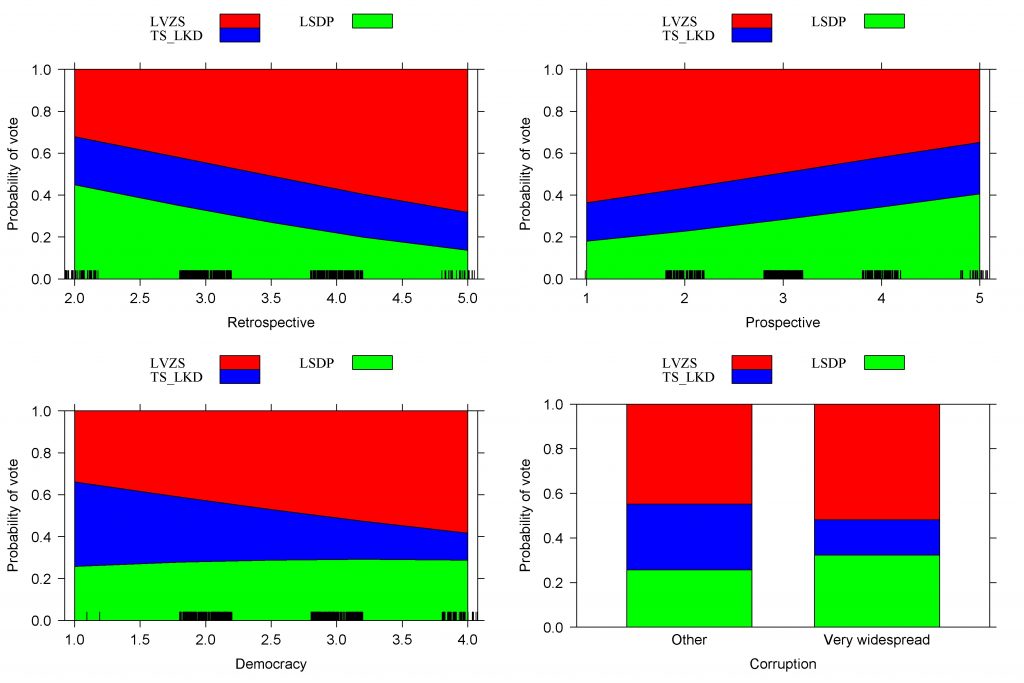By Mažvydas Jastramskis
Voters in the Central and Eastern Europe are known for their inclination to constantly punish the government parties at the elections. In his new article (published in East European Politics and Societies and Cultures) Mažvydas Jastramskis explores the case of Lithuania and finds a phenomenon of double dissatisfaction: first, due to economic discontent, voters turns away from the incumbent and second, due to political mistrust, they often turn not to the parliamentary opposition, but to new parties.
Figure shows this double dissatisfaction, as the winner of 2016 Lithuanian parliamentary election (new party) capitalizes on both the economy and politics. It wins against the mainstream parties (government party LSDP and opposition party TS-LKD) on two main fronts: the probability of a vote for LVŽS is highest among those who are most discontented with democracy (.58) and with the economy (.68).
